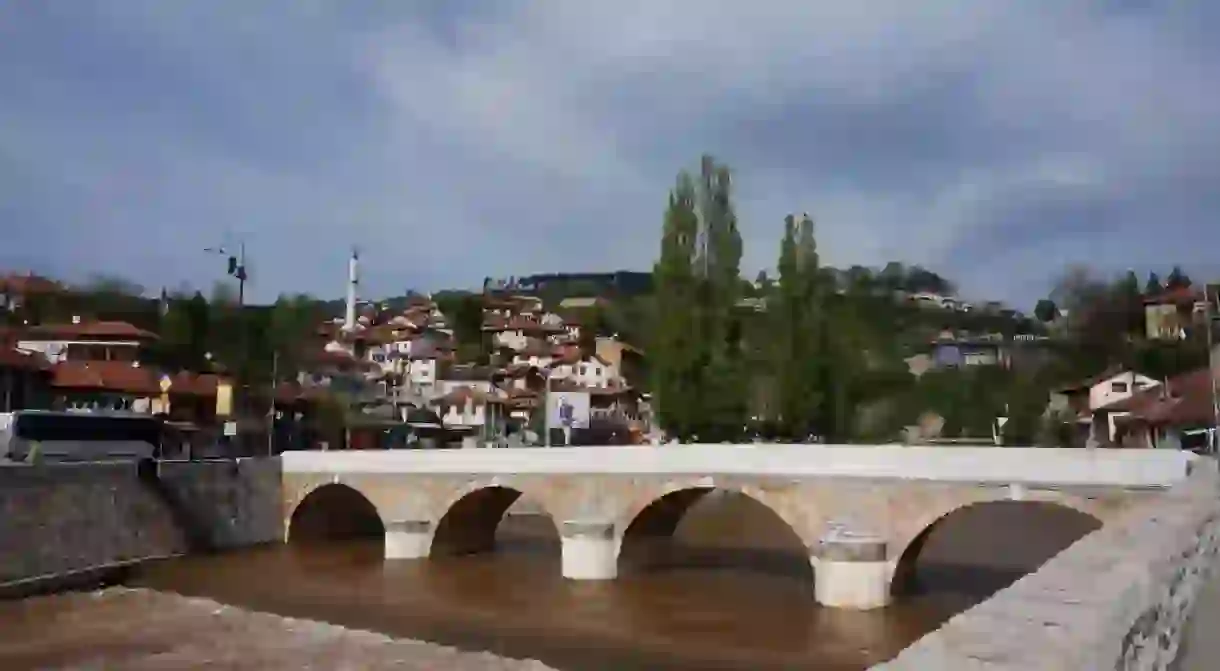11 Things to Know Before Visiting Bosnia

Two decades after the conflict, Bosnia is recovering and becoming a destination for adventurous travellers. Here are a few practical things to know before travelling to Bosnia and Herzegovina.
Bosnia is NOT a war zone
“Tell your friends that Bosnia isn’t a war zone anymore,” were the final words of Neno, our Sarajevo walking tour guide. More than 20 years after the Yugoslav Wars and the Siege of Sarajevo, it’s surprising how many people think Bosnia is still in conflict. Neno joked with us about how many Western tourists expressed delight at not being shot as they took part in his tour. Bosnia is a safe destination to visit, and you’re not going to be the target of a sniper hiding in the hills!

Getting into Bosnia
Bosnia isn’t part of the EU or Schengen. Most nationalities get a visa for 90 days in every 180 on arrival. Check to make sure you’re eligible and don’t assume that, just because other countries allow visa-free travel, you can enter Bosnia.
Foreigners should register with local police within 72 hours of arriving.
The passport stamp
When arriving in Bosnia and Herzegovina over a land border, you may or may not get an entrance or exit stamp. Immigration officers collect the documents on the bus before returning them to the driver. Passengers usually don’t get off. Border officials are sometimes careless because the locals only need to show their ID cards. You may not get your passport back until the bus has long since departed from the border. Not getting a stamp is worrying but rarely causes problems. If you’re concerned, insist on getting off the bus.

Know the difference between ‘Bosnian’ and ‘Bosniak’
The complicated history makes a tiny difference in spelling a contentious issue. ‘Bosnian’ and ‘Bosniak’ aren’t synonyms. A Bosniak is an ethnic Muslim; a Bosnian is someone from Bosnia, or their nationality. There are Bosnian Bosniaks (Muslims), Bosnian Serbs (Orthodox Christians), and Bosnian Croats (Catholics).

The Bosnian convertible mark
The Bosnian Mark is the official currency, which Republika Srpska uses too. At the time of writing, $1 USD is approximately 1.6KM, and €1 is just under 2KM. Tourists can often pay in USD or Euros with an unfavourable exchange rate, and locals accept the Croatian Kuna in places near the border. But don’t rely on people accepting foreign currency, especially outside of the touristy areas.
Exchange rates
Compared to neighbouring countries, the exchange rates in Bosnia take up to 5 percent. Rates in Serbia are better and give almost a one-to-one rate, which means it may be a good idea to change money before reaching Bosnia if you’re already in the Balkans. If you do need to change more, several exchange offices are along Ferhadija Street.

Beggars
Expect beggars in Sarajevo, Mostar and Banja Luka. Some are genuine. Others are not. Unemployment, alcoholism and a lack government help force the unfortunate to the streets. Older women, probably widowed, roam the streets selling anything from tissues to socks. ‘Buy’ something to donate your money. Others sit in the touristy areas holding their hands out.

Credit cards
Bosnia is a cash-based society, perhaps because the country’s only just starting to recover a result of the economic crash after the Bosnian War. ATMs are available where you can expect to pay up to 7 percent in fees, conversions and commissions. Not all places accept credit card. Bring cash.
The free walking tour
Free walking tours are available in Sarajevo and Mostar. Local guides take visitors around explaining the main sights in a historical and cultural context. The young guides lived through the war and will share their experience. Sarajevo has two daily free tours: The East Meets West in the morning goes to the main attractions, and the afternoon War Scars is about the Siege of Sarajevo.

Shopping in Bosnia
Bosnia isn’t part of the EU and doesn’t have the same freedom to trade as other countries. Retail prices are higher for imported goods such as shoes and clothes. You may get a Western European price tag in some shops for cheap, lower-quality products.
Having a stress-free trip to Bosnia
Bosnia and Herzegovina is a little rough around the edges but nowhere is perfect, right? Bring cash, expect laid-back border officials and give donations to the right people.













